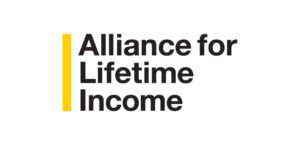Last Updated on November 4, 2021
 This post is sponsored by the Alliance for Lifetime Income.
This post is sponsored by the Alliance for Lifetime Income.
The unusual circumstances of the pandemic have created a tough environment that has driven many Americans into an early retirement. More than a quarter of all workers have reported that the global pandemic has prompted them to move up their retirement date, according to a recent survey by the National Institute for Retirement Security. As a result, nearly two thirds (65%) of financial professionals say they’ve had to change their approach to retirement planning over the past year.
So, whether you are forced into early retirement or choosing to hang up working full time, here are five actions you should consider taking.
- Prepare a retirement budget. Designing a budget can help you plan how your money will be spent and consider updating it to accommodate any changes in your financial situation. And remember to take into consideration a budget that lasts throughout retirement. Thankfully, there are many easy-to-use, personal finance tools and guides available online to help you plan, track and manage your funds. One place to start is the nonprofit Alliance for Lifetime Income’s free RISE Score® calculator to assess what the risk might be of not having enough retirement income that lasts.
- Identify your retirement income sources. Learn what your potential or anticipated sources of income (Social Security, pensions, annuities, distributions from personal investments and savings) are to help ensure you have the protected income you will need in retirement, which could last 20, 30, or more years. Protected income – income you’re guaranteed to receive – is a great way to cover your essential monthly expenses in retirement. An annuity is a form of protected income that can help give you peace of mind by providing a steady and regular stream of income you can count on for your entire life. There are a variety of other annuity options available – including ones that can both protect and grow your money – so talk to your financial professional to help determine what’s right for you.
- Take health insurance into account. If you retire before age 65, you won’t yet be eligible for Medicare, so health insurance costs should be an important consideration when creating your financial plan for retirement. If you have a spouse who is still working, you may be able to tap into their healthcare coverage. Otherwise, you may want to look into other options, like COBRA, Medicaid, private health insurance or your state’s health insurance marketplace. The Alliance offers a few simple tips on how to address and plan for healthcare expenses in retirement.
- If you’re offered an early retirement package, do your homework before saying yes. Your severance package should ideally offer enough cash to cover several months – or more – of your current paycheck. For example, if you earned $300,000 annually in pay, a package should ideally offer up at least six months of pay ($150,000) to make it worth your while. Ensure that you will be secure financially if you accept the package and that it keeps your retirement plans on track. Many packages are also negotiable to a certain extent, so be sure to fully understand your options, decide what is most important to you and ask for it.
- Talk to a financial professional. Consulting an experienced financial professional can help you establish a plan that’s geared toward your exact needs and can help you afford the life you want in retirement. The Alliance has created a list of useful resources to help you get started and find the right professional near you.
To learn more about how to protect your retirement, visit protectedincome.org.















